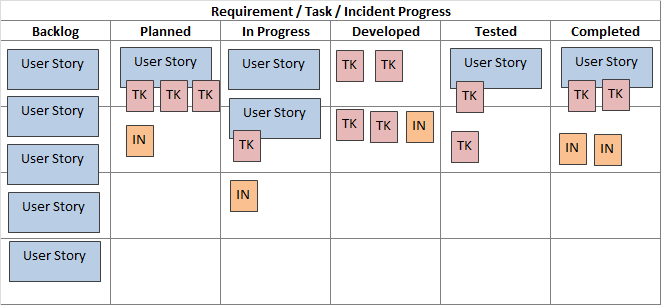While software development is essential for business growth, not every company can maintain all the necessary development capabilities in-house. Especially startups and small to medium-sized businesses often rely on software outsourcing due to resource constraints. However, choosing the wrong software outsourcing partner can lead to project failure, budget waste, and time delays.
This article introduces seven essential checklists you must verify to select a reliable software outsourcing partner.
Summary of the 7 Key Checklists
- Industry Experience and Software Expertise: Do they have sufficient experience and understanding in our industry?
- Technology Stack Compatibility: Do they have expertise in the software technologies needed for our project?
- Development Methodology: What systematic software project management and progress reporting methods do they use?
- Development Team Composition and Capabilities: What experience and expertise do the actual software development personnel have?
- Quality Control Process: How do they ensure code quality and software testing?
- Security and Data Management: How do they protect sensitive information and data?
- Contract Terms and Support: How do they handle intellectual property, maintenance, and dispute resolution?
Using these checklists along with a step-by-step evaluation process (initial screening → detailed assessment → pilot project → final contract) will greatly help you select a reliable software outsourcing partner.
1. Relevant Industry Experience and Software Expertise

Every industry has unique regulations, user expectations, and software requirements. A software outsourcing partner with experience in your industry can understand the ecosystem and provide industry-specific solutions.
What to Check:
- Similar Software Project Portfolio: Software development experience in identical or similar industries
- Understanding of Industry Standards and Regulations: Knowledge of relevant laws and software security requirements
- Understanding of Industry-specific User Behavior Patterns: Insights into software users' expectations and behavior
Example Questions:
- "Can you introduce similar software projects you've carried out in our industry?"
- "How do you respond to our industry's specific regulatory requirements in terms of software development?"
- "What was the most challenging software development issue you faced in this industry, and how did you solve it?"
2. Technology Stack Compatibility and Development Expertise
The compatibility between the software outsourcing team's technology stack and your existing systems directly affects the smooth integration and long-term maintenance of the project. Understanding of the latest software technology trends is also the foundation for developing competitive solutions.
What to Check:
- Core Development Technology Expertise: In-depth knowledge of the core software technologies needed for the project
- Experience with Existing System Integration: Ability to connect APIs, databases, and legacy systems
- Ability to Apply Latest Software Trends: Possibilities for optimization through the adoption of new technologies
- Rationale for Technology Selection: Understanding of the reasons and pros/cons for preferring certain software technology stacks
Example Questions:
- "What do you think is the most suitable software technology stack for our project? Why?"
- "What problems might arise in integrating legacy systems with new software solutions, and how do you plan to solve them?"
3. Development Methodology and Software Project Management Process

Systematic software development methodologies and project management processes are the foundation for meeting deadlines, quality control, and transparent communication. These are key factors for software project success.
What to Check:
- Software Development Methodology: Which methodology they use - Agile, Scrum, Waterfall, etc.
- Project Management Tools: How they use Jira, Asana, Trello and other software development management tools
- Progress Reporting System: How often and in what format they provide software development updates
- Issue Tracking and Resolution Process: How they respond to software problems and their step-by-step reporting structure (to whom and in what order problems are reported and resolved)
Example Questions:
- "What main development methodology do you use in your software development process and why did you choose it?"
- "How and how often do you share project progress?"
- "Can you explain your general response process when unexpected problems occur?"
4. Development Team Composition and Capabilities
Software project success ultimately depends on the capabilities of the developers carrying it out. The development team's size, experience, expertise, and communication skills directly determine the quality of the deliverables.
What to Check:
- Experience and Specialties of Key Developers: The careers and software expertise of the main development personnel who will participate in the project
- Development Team Stability: Staff turnover rate and the possibility of developer changes during the project
- Role Distribution: Clear distinction of roles such as project manager, software developer, QA engineer, etc.
- Communication Skills: Effective software-related communication skills, especially with non-technical stakeholders
Example Questions:
- "Can you introduce the careers and roles of the key developers who will participate in our software project?"
- "How do you respond if key development personnel leave during the project?"
- "How do you explain complex software concepts to non-technical personnel? Can you give an example?"
5. Software Quality Control and Testing Process

Software quality is an element that can never be compromised. Systematic software QA and testing processes lead to minimized bugs, improved user experience, and reduced long-term maintenance costs.
What to Check:
- Software Quality Control Methodology: Approaches such as code reviews, unit tests, integration tests, user tests, etc.
- Degree of Test Automation: CI/CD pipelines, automated software test coverage
- Bug Tracking and Resolution Process: How software issues are prioritized and resolved
- Performance Testing: Methods for verifying software performance such as load tests, stress tests, etc.
Example Questions:
- "How do you ensure quality during the software development process? Can you explain your specific QA process?"
- "To what extent do you utilize automated testing in the software development process? How do you set code coverage goals?"
- "Can you give an example of a serious bug discovered in a recent project and the process of resolving it?"
6. Software Security and Data Management Approach
Why It's Important:
Data leaks and software security vulnerabilities can seriously damage a company's reputation and finances. The software outsourcing partner's security awareness and processes are essential for minimizing these risks.
What to Check:
- Software Security Policies and Protocols: Data encryption, access control, vulnerability management, etc.
- Compliance Experience: Experience with software-related regulations such as GDPR, HIPAA, etc.
- Code Security Review Process: Static/dynamic code analysis, software security code reviews
- Incident Response Plan: How to respond to software security incidents and communication plans
Example Questions:
- "How do you protect sensitive customer data in software systems? Can you explain specific security measures?"
- "Have you ever experienced software security-related issues in the past? How did you resolve them?"
- "What security tests do you perform during the software development process?"
7. Contract Terms and Support Policy
Clear contract terms set expectations and prevent disputes. Especially software intellectual property rights, maintenance, and support policies have significant impacts on long-term relationships.
For more details on contract term negotiations, please refer to Four Essential Elements for Successful Software Outsourcing.
What to Check:
- Software Intellectual Property Policy: Code ownership, licenses, reuse policies
- Pricing Model: Fixed price, time and materials, milestone-based, etc. for software development cost structure
- Change Request Handling: Process and cost impact when software requirement scope changes
- Maintenance and Support Conditions: Support period after software project completion, SLAs, cost structure
- Contract Termination Conditions: Software development contract termination conditions and asset transfer methods in case of dissatisfaction
Example Questions:
- "How are intellectual property rights for the developed software code handled?"
- "How are bug fixes and maintenance supported after software project completion?"
- "How do you respond if software requirements change? How are additional development costs calculated?"
Conclusion
Using the seven checklists introduced above will help you select the most suitable partner for your software project requirements. Also, remember that the success of outsourced software development comes not only from partner selection but also from subsequent relationship management, clear communication, and a collaborative culture based on mutual respect.
Software outsourcing is not simply delegating development work, but a strategic partnership for achieving business goals. From this perspective, software outsourcing development can be a powerful tool to accelerate business growth beyond the limitations of internal resources.
From information architecture to screen layout, we'd love to discuss any admin-related concerns you have.
Please schedule a time through this link.
